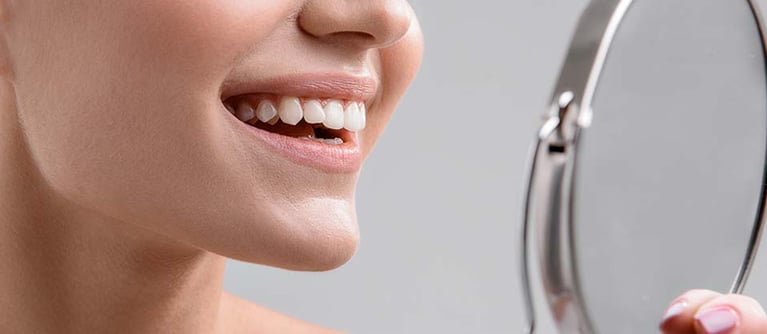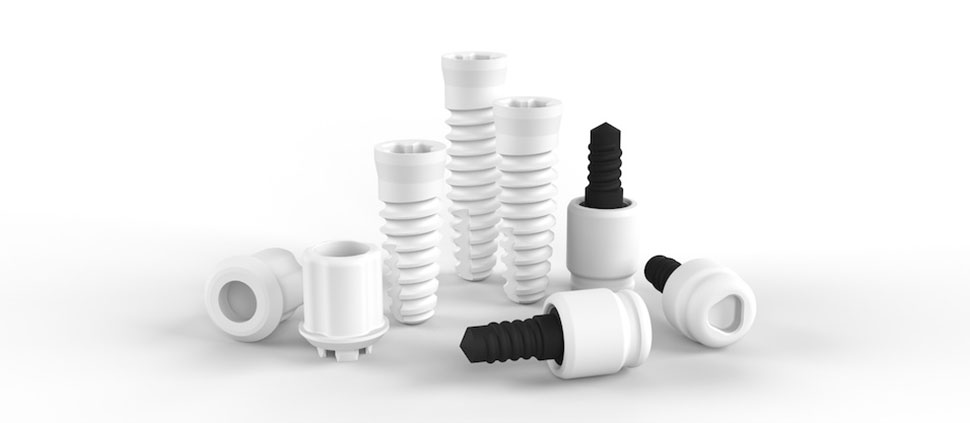Are Veneers Painful?
Don’t worry: the process is generally comfortable and pain-free. Our dentist will use local anesthesia to numb your teeth and gums, ensuring you feel no pain throughout the procedure. Afterwards, you may experience mild tooth sensitivity, but this typically goes away within a few days to a couple of weeks. If you’re still feeling nervous, try these relaxation techniques before your appointment.
Will Veneers Damage My Teeth?
No, veneers will not harm your teeth when fitted correctly by an experienced dentist. Your teeth can stay healthy underneath, but it’s essential to maintain proper oral hygiene to prevent decay around the veneers. Regular brushing and flossing are crucial to maintaining your overall oral health.
Are Veneers Real or Fake Teeth?
Veneers are not fake teeth, but rather thin shells of porcelain or composite resin that are custom made to sit on top of existing teeth. They improve the look of teeth by changing the colour, shape and alignment while leaving the natural tooth structure underneath.
Are Veneers Permanent?
Yes, most types of veneers are permanent. Once attached, they cannot be removed without damaging your natural teeth. Some options, like no-prep veneers, are reversible, but aren’t suitable for everyone. Consult your dentist to determine which option suits you best.
How Long do Veneers Last?
- Composite Veneers: 5-7 years with proper care.
- Porcelain Veneers: 10-15 years.
- Lumineers: Up to 20 years.
- No-Prep Veneers: 10-15 years.
- Pop-On Veneers: 6 months to 1 year with careful use.
- Removable Veneers: 1-2 years depending on material and usage.
- Emax Veneers: 15-20 years with proper care.
- Zirconia Veneers: Up to 20 years with proper care.
These lifespans may vary depending on oral hygiene, diet, and bruxism. Regular dental check-ups are key to veneer health. Schedule your appointment with Nuffield Dental now!
Do Veneers Look Natural?
Yes, veneers can look very natural when applied correctly. Your dentist will match the colour and shade to your existing teeth and use special techniques to ensure the veneers have a translucent quality, resembling real teeth. This will keep your pearls and smile looking real.
Do I Need to Remove My Veneers Before Brushing My Teeth?
No, you don’t need to remove your veneers when brushing. Brush gently with non-abrasive toothpaste to protect your natural teeth and veneers. Look out for mild ingredients such as hydrated silica and calcium carbonate.
What Will My Veneers Look Like After 10 Years?
After 10 years, your veneers can still maintain their shine and colour. While you might notice some changes over time, they should still look natural and aesthetically pleasing with proper oral health care.
What Happens to Real Teeth Under Veneers?
Your real teeth will remain intact and safe underneath, protected by the veneers. Regular dental check-ups will keep your teeth healthy in the long run.
Can I Go Back to Normal Teeth After Veneers?
Not in most cases. During veneer fitting, a thin layer of enamel is removed to make space for the veneers, altering the surface of your teeth forever. This enamel removal is necessary for the veneers to fit and look natural. If you have any questions or concerns, we highly recommend discussing them with your dentist before you proceed with the treatment.
Can I Have Veneers if I Have Gum Disease or Receding Gums?
No, you should avoid getting veneers if you have active gum disease or receding gums, as these conditions need to be treated first. Untreated gum problems can worsen with veneers, so wait until your gums are fully healed, then consult your dentist to discuss safe veneer options for enhancing your smile.
Can Veneers Be Whitened?
No, you can’t whiten porcelain veneers with standard whitening methods as porcelain doesn’t respond to whitening gels or treatments. If your veneers look stained, don’t worry as professional cleaning may remove surface stains.
For composite veneers, gentle polishing can work. Polishing involves using fine abrasives like aluminium oxide polishing paste and polishing discs or rubber cups. This will restore the original shine and remove surface stains.
Other types of veneers, like lumineers or no-prep veneers, may also require professional cleaning and polishing for maintenance. Consult your dentist for the right care and maintenance of your veneers to keep them in top shape.











